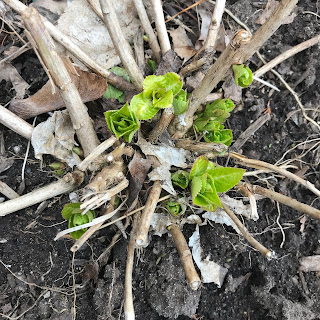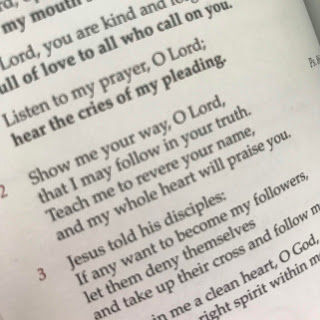A little over a week ago, I started seeing an article popping up on FB, shared by numerous friends. It was the most dire headline about climate change I've ever seen:
HUMAN CIVILIZATION WILL CRUMBLE BY 2050
IF WE DON'T STOP CLIMATE CHANGE NOW, NEW PAPER CLAIMS.*
I didn't read the article right away. I scanned it. The opening paragraphs seemed to support the headline. And there it was again, that old familiar sinking feeling.
This wasn't news to me.
In 2012 I was faced with the proposition of selling my parents' beautiful home at the Jersey shore, located along the inland waterway. I talked to my realtor frankly.
"How can I sell this in good conscience, seeing as I'm pretty sure it's likely to be underwater in 20 years?"
She replied, "All the buyers have access to the same newspapers you do."
I allowed that to be my ethical get-out-of-jail-free card, and sold my parents' house at market rate.
On the day of my closing, Superstorm Sandy made landfall, pretty much, right exactly on top of my parents' house.
I waited for the phone call from my realtor, telling me the buyer wanted out. The house had three feet of water in it. Sounds about right, I thought. Who in their right mind wants it now?
And I returned to an old fantasy of retiring there, and swimming in the bay in my dotage, and walking down to the beach for sunrise, and returning to watch the timbers decay around me.
A phone call came, but it was not the one I was expecting. The buyer wanted to send his contractor to have a look. Was that ok with me?
Sure! I said. I was hundreds of miles away, so I was grateful to at least have some sense of how bad the damage was.
The contractor went in on a Saturday. He called me from the house. The entire first floor had been flooded, of course, and the furnace, hot water heater, and central air unit were all destroyed.
He told me the buyer was still interested, but to keep the house viable, they had to start tearing out walls, gut the first floor bathroom, laundry room, and shower, and place fans all around, immediately, before mold took hold.
Would I be willing to let them do that, while they contemplated their revised offer?
As I hung up the phone, I remembered my realtor's words to me.
"They have access to the same newspapers you do."
And now, they'd had access to the violence and scope of the storm of the new era of accelerated climate change.
When it hit, Sandy was the second most expensive storm in US history, with damages eventually reckoned at about $70 billion.
Now, it is the fourth most expensive hurricane, having been surpassed by Harvey and Maria in 2017.
This is our reality. This is our future. Climate change is now.
But people with enough money are still going to buy homes on the water, because they can afford to.
Even after seeing that damage. Even after paying for it.
According to the new study out of the Breakthrough National Centre for Climate Restoration in Australia, climate change poses an existential threat to humanity if not addressed aggressively, right now. The authors take to task governments that refuse to recognize the national security risks as well as the potential loss of human life involved. They also scold scientists who are, in their view, erring on the side of "least drama."
If ever there was a moment for drama in the service of a call to action, this is probably it.
The second night after I read the paper I couldn't shake a feeling of dread as I got ready to go to sleep. I settled in and turned out the lights. I started to think of my children. I calculated how old they will be in 2050. I wondered whether either of them would have children. (I have always hoped they would. Now I am not so sure.)
I began to cry. This is not the future I want for my children, or anyone's children. I don't want either the people I love or people I've never met to face the nightmare scenario of the places they love underwater, the lives they create wiped away, and the complete disappearance of water and air clean enough to sustain life.
Something in me has shifted. I cannot shake this, cannot put it away in a safe place, cannot pretend everything's going to be ok. I know that action is the only possible response.
Scripture tells me that the earth-- and everything else-- is the creation of an infinitely inventive God, who commissions humans to care for it. Though the classic translation of Genesis 2:15 is that the human was placed in the garden to "till it and keep it," the Hebrew beneath the English translation is far stronger. The word translated "till" has the same root as "servant." The human is being told to serve the earth. And that word translated "keep" is just as often translated "guard" or "protect."
For people in the Jewish and Christian traditions, our mandate is to serve and protect the earth. Of course, indigenous peoples have been telling us this ever since Europeans got off their ships and looked around to see what they could mine, cut, and otherwise seize from the land.
But I digress.
I do most of the things people are supposed to do to try to ease their carbon footprint. I recycle. I carry re-usable tote bags to the grocery store. I drive a hybrid car.
I still fly, though, usually once or twice each year. I eat meat, the production of which is a huge source of carbon emissions. What I recycle includes a lot of plastics. And even though it's a hybrid, I still drive, every single day.
Scientists are telling us that individuals, on our own, cannot effect change on a large enough scale. What we do in our homes at at our jobs will not be enough. Governments have to take action. Policies have to change. In 2016, the earth was the warmest it had been in 120,000 years. The amount of carbon dioxide in the atmosphere-- the thing that causes climate warming-- is the highest it's been in human history, and higher than it's been for millions of years.
Recycling is good. I won't be giving up my hybrid any time soon. And I'm not giving up on the notion that we can, somehow, turn this ship around.
The most important thing I can do to combat climate change -- that any of us can do-- is to vote.
I'm going to find the candidates at every level-- local, state, federal--who are the most committed to serving and protecting the earth, and I'm going to give them my complete support.
I'm going to find the ones who are committed to putting limits on carbon emissions and fighting back against those who are more interested in lining their pockets than in saving the planet.
I'm going to go to work for them, go door to door for them, show up at their campaign rallies, donate to them, and get people to the polls for them.
And I'm going to vote. I suggest you do, too. Vote, vote, vote.
That's the only thing that can save us now.
* You can find the article by putting the title above into a search engine,



















